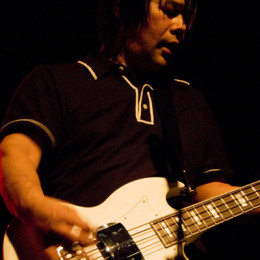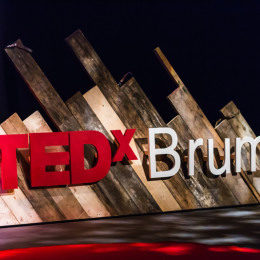Feeder – O2 Birmingham Institute
With bands struggling to last much beyond a third album today, it’s refreshing to see a seasoned band such as Feeder still packing out venues and connecting with an audience that have generally aged with them.
Having taken a four-year hiatus following the fairly mediocre reaction to eighth studio album ‘Generation Freakshow’, Grant Nicholas and fellow long-standing member, Taka Hirose, strutted on stage to a rapturous welcome, allaying any fears that any ‘Feeder-fatigue had developed. Beginning with a new track – ‘Another Day on Earth’ – the song felt as unimaginative as its title. The majority of tunes played off their latest LP ‘All Bright Electric’ were a little vague lyrically and felt as if they were Feeder-by-numbers.
The show shifted up a gear when they played the gloriously poppy ‘Pushing the Senses’, inciting the sort of physical explosion in the crowd that Feeder gigs were often notorious for. The irritatingly catchy ‘Lost and Found’ was tossed out as a reminder of how Feeder have often marred albums with novelty rock songs.
Conversely, when they get it right, Feeder possess a collection of euphoric rock songs full of great depth and soaring melodies. 1997 single ‘High’ is a Feeder benchmark, and tonight was no different. The song resonating even more after Nicholas – somewhat uncharacteristically – introduced the song with an articulate polemic about the destruction of the music industry and how it was an easier and more successful time to be in a band back in the 1990s. A simple but effective point as the fragmentation of music in the last decade has seen music diminish as a highly-valued art form.
The middle of the set felt a tad plodding and featured the gentile ‘Tender’ and newbie ‘Paperweight’, a pair of songs that witnessed the audience’s focus drift. However, football-style chanting of “Feedeeer” sparked a smiles from the band and gave credence to the hardcore element of fans who have followed the band since the days of the tragically departed former drummer Jon Lee, who committed suicide over 14 years ago. The interaction between band and audience was excellent throughout.
‘Come Back Around’ increased the tempo and made a welcome return to the setlist, having been omitted from their last tour. It was start of a top-heavy hit-laden final chapter of the set – albeit blighted by excessive feedback that spoilt the turbo-charged ‘Insomnia’ and new song ‘Infrared-Ultraviolet’. Not that the crowd seemed to mind, as signature tune ‘Buck Rogers’ brought the house down before a double-whammy of ‘Seven Days in the Sun’ and ‘Just a Day’ saw Feeder climax on a high. At their best, Feeder can be joyous, but their flaws were a little too evident to suggest this was a classic.



